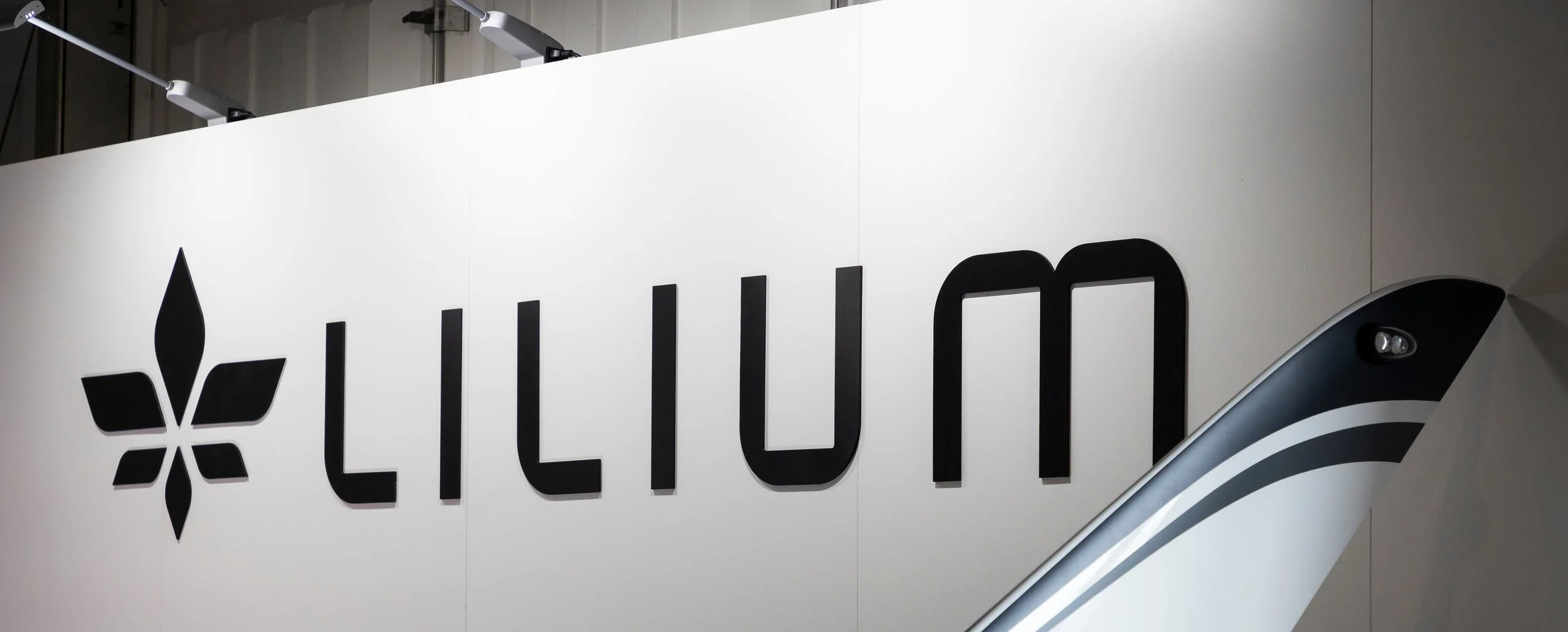The Rise and Fall of Lilium: A Cautionary Tale in the eVTOL Industry
Lilium, once a beacon of innovation in the electric vertical take-off and landing (eVTOL) sector, charted an ambitious course to revolutionize regional air mobility. Founded in 2015 in Munich, Germany, the startup envisioned a future where its sleek, electric jets would ferry passengers swiftly over short distances, bypassing ground traffic and reducing carbon emissions. However, despite significant investments and high-profile partnerships, Lilium's journey culminated in insolvency filings by late 2024, highlighting the formidable challenges inherent in pioneering new aviation frontiers.
Ambitious Beginnings and Financial Milestones
Lilium's vision attracted substantial investor interest. By September 2021, the company had raised over $375 million across multiple funding rounds, with backers including Tencent, Atomico, and Earlybird Venture Capital.
The company's unique design, featuring 36 ducted electric fans, promised quieter operations and longer ranges. However, this complexity led to engineering challenges, delays in prototype development, and difficulties in achieving certification milestones.
In a bold move, Lilium went public on the NASDAQ through a Special Purpose Acquisition Company (SPAC) merger, achieving a valuation of $2.4 billion despite having no significant revenue at the time and technical delays.
Lilium aimed to revolutionize regional air mobility with its innovative jet design. However, despite raising substantial funds and going public via a SPAC merger, the company had no significant revenue streams. This disconnect between ambitious projections and financial realities contributed to investor skepticism and financial instability.
Technological Innovations and Operational Hurdles
Its unique aircraft design was central to Lilium's proposition: a fixed-wing jet equipped with 30 ducted electric fans, promising quieter operations and a range of up to 250 kilometers.
This design aimed to differentiate Lilium from competitors relying on traditional rotor-based systems.
However, the complexity of this configuration introduced significant engineering challenges, leading to delays in prototype development and testing. By late 2024, the company had yet to conduct successful test flights with its final aircraft model.
Financial Strains and Unfulfilled Promises
Lilium's ambitious projections included generating €240 million in revenue by the end of 2024, a target it failed to meet. Instead, the company reported cumulative losses exceeding €1.36 billion by March 2024.
Efforts to secure additional funding, including a €100 million loan from the German government, were unsuccessful. Consequently, Lilium filed for insolvency in October 2024, leading to its delisting from the NASDAQ and the layoff of approximately 1,000 employees.
The eVTOL industry faces stringent regulatory requirements. Lilium's inability to meet these, coupled with a lack of clear market differentiation, hindered its progress. Additionally, the broader eVTOL market has seen declining investor enthusiasm, eroding the once lofty projections of a $1 trillion market.
Market Position and Competitive Landscape
While Lilium's design was innovative, it lacked a clear Unique Selling Proposition (USP) in a rapidly evolving market. Competitors like Joby Aviation and Archer Aviation advanced more swiftly, securing regulatory approvals and conducting numerous test flights. These companies also benefited from substantial government support, contrasting with Lilium's struggles to obtain similar backing.
Lilium's trajectory underscores the complexities of introducing groundbreaking technologies in capital-intensive industries. The company's experience highlights the importance of aligning technological innovation with pragmatic business strategies, regulatory compliance, and sustainable financial planning. As the eVTOL sector continues to mature, Lilium's story serves as a poignant reminder of the challenges startups face in transforming visionary concepts into operational realities.
Current Status and Future Prospects
Lilium applied for insolvency in October 2024. Until late 2024, it seemed quite certain that the company would stop operations once and for all. However, on December 24th, 2024, a deal called “Christmas Miracle” by the media, induced the company with an additional capital of $200 M. This move was supposed to help Lilium recover and deliver. Unfortunately, Lilium again applied for insolvency in February 2025, claiming that the promised funding never came through.
As of May 2025, Lilium's operations remain suspended, with no clear path to revival. The company's assets are under the management of insolvency administrators, and efforts to secure new investment have thus far been unsuccessful.
The broader eVTOL industry continues to evolve, with other players advancing their technologies and securing regulatory approvals. Lilium's experience serves as a case study in the challenges of pioneering new aviation technologies without a clear market differentiation and sustainable financial strategy.
The company's experience highlights the importance of aligning technological innovation with pragmatic business strategies, regulatory compliance, and sustainable financial planning. As the eVTOL sector continues to mature, Lilium's story serves as a poignant reminder of the complexities of transforming visionary concepts into operational realities.

